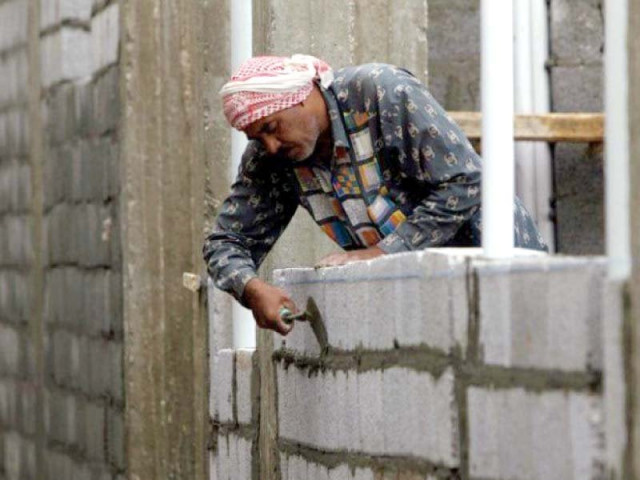Sindh announces first-ever tripartite labour policy
Policy addresses issues of child labour, trade union and women workers

Labour laws are mostly male-centric, but this policy will also address women labour issues, which include equal opportunities and equal remuneration in line with International Labour Organization (ILO) conventions. PHOTO: REUTERS
Unveiling the policy at a press conference on Saturday, Sindh Minister for Information, Labour, Human Resources, Transport and Mass Transit Nasir Hussain Shah said, “The policy is for labourers that are the most repressed segment of our society, but it is also friendly to investment so that both employees and employers benefit with balance.”
Industrialists oppose Rs25,000-per-month minimum wage
Experts believe though Sindh may be the leading province in making labour laws, it will be facing many challenges in its implementation.
“The policy is rights-based, participatory and inclusive,” said the minister while presenting the Labour Policy 2018 titled ‘A Framework of Industrial Relations, Social and Economic Wellbeing of the People of Sindh’.
The policy aims to ensure health and safety at work along with guaranteeing living wages for all. In order to facilitate and monitor the implementation of laws, the ministry will set up a provincial health and safety council.
Labourers in the agriculture and mining industries will be brought under the labour legislation and provided the same protection as other workers.
Labour laws are mostly male-centric, but this policy will also address women labour issues, which include equal opportunities and equal remuneration in line with the International Labour Organization (ILO) conventions.
Under the new policy, the law regarding prohibition of employment of children under the age of 14 will be extended to domestic and home-based workers. Furthermore, children between the ages of 16 and 18 will not be engaged in hazardous conditions.
The labour policy 2018 will ensure that children get the minimum wage along with access to education and training tailoured for them.
Bonded labour will be abolished in all its forms. All restrictive provisions on trade union formation will be removed in accordance with the ILO Conventions 87 and 98.
The government also plans to strengthen the Sindh Minimum Wages Board so that with the help of the existing tripartite, it can protect minimum wages. The policy also looks to extend the scope and coverage of Sindh Employees’ Social Security Act 2015 and Sindh Workers’ Welfare Fund Act 2015 to all formal, informal, contract, piece-rate, home-based and seasonal workers in all sectors of the economy.
In addition, the coverage of employees’ old-age benefits, medical facilities along with coverage of Sindh Workmen’s Compensation Act 2015 will also be extended to the above mentioned labourers.
The Sindh government will strengthen the social security hospitals and wherever treatment facilities are not available the workers will be referred to public-private hospitals and the respective social security institution will bear the cost of treatment, the policy document said.
The ministry will establish Labour Market Information System within the Directorate of Labour, Sindh. A tripartite (employee-employer-government of Sindh) Productivity Council will be set up to analyse factors behind low productivity and propose sector/industry-wise measures for the enhancement of productivity.
Proud of their accomplishments, Senior Minister Nisar Ahmed Khuhro said, “Sindh took the lead in Pakistan to introduce the labour policy even though the 18th Amendment was for every province.”
He reminisced that Zulfikar Ali Bhutto was the first to make a labour policy for the protection of workers. Although the policy could not be continued, the Sindh government has followed his policy and revealed the first-ever Tripartite Labour Policy 2018, he added.
Appreciating the provincial government, ILO Country Director Angrid Kristen said, “Inclusiveness for all stakeholders in this policy is a great achievement. Sindh is an example to many outside countries that have not achieved what the province has managed.”
ICT to protect child labourers by codifying four new laws
The ILO official, who was present on the occasion, said freedom to union and laws related to child labour were not easy issues to address. He said although the first step had been taken, implementation would not be easy. “You have to show the world and rest of Pakistan that you can do it.”
Published in The Express Tribune, February 11th, 2018.
Like Business on Facebook, follow @TribuneBiz on Twitter to stay informed and join in the conversation.


















COMMENTS
Comments are moderated and generally will be posted if they are on-topic and not abusive.
For more information, please see our Comments FAQ